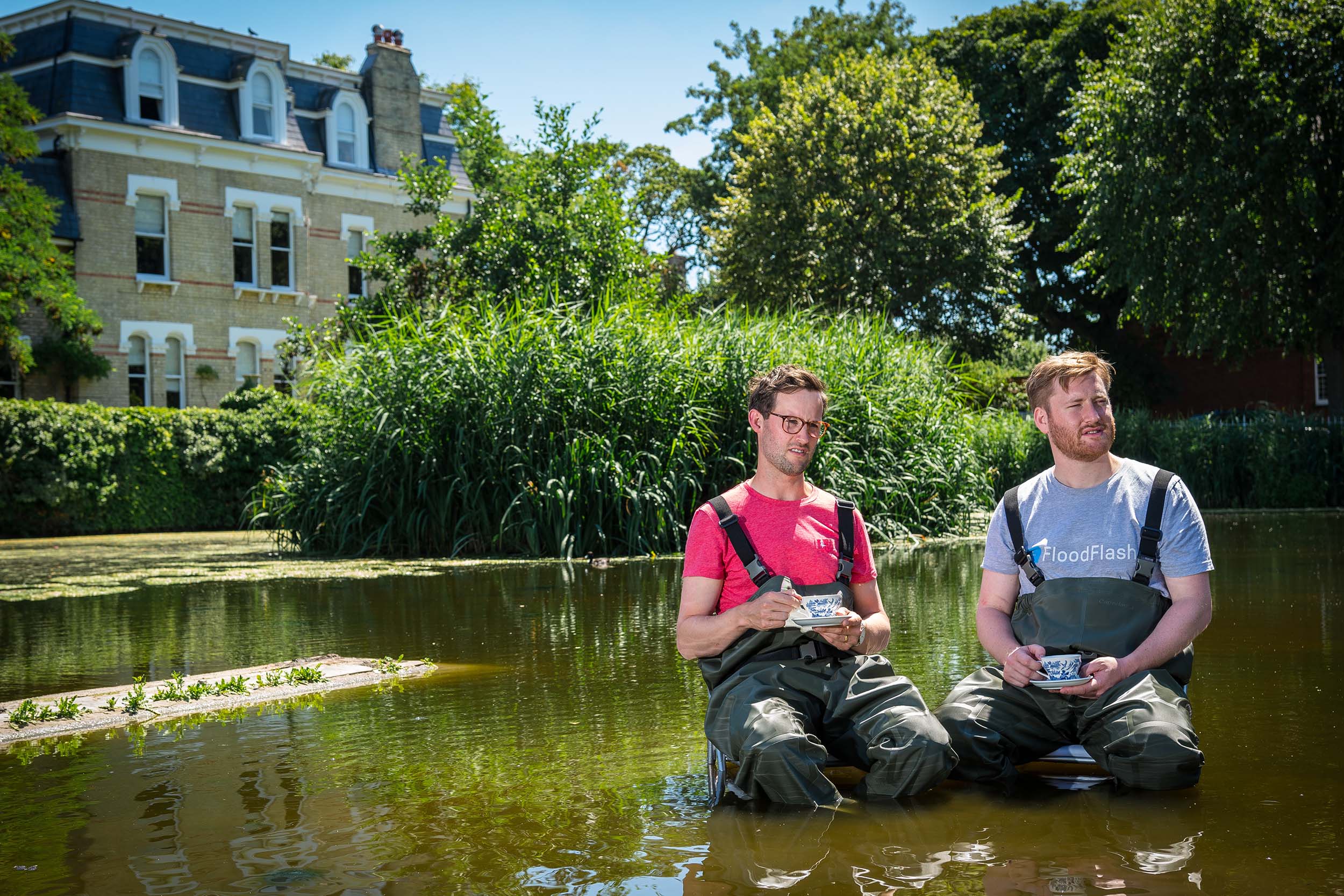University grant develops the right trousers for elderly
Posted on 10th March 2015 by TBrit Staff

Seven UK universities have been awarded a £2 million grant to develop “soft robotic” wearables to maintain the mobility and independence of disabled and elderly people. The research effort will combine teams from Nottingham, Leeds, Strathclyde, Southampton and Loughborough universities plus Bristol’s University of the West of England, all under the direction of the University of Bristol.
Dr Jonathan Rossiter, lead researcher and reader in robotics at Bristol University’s Faculty of Engineering, feels the timely funding has arrived at the thin end of a growing market that will support an aging population where demand for mobility aids will increase. It could reduce the need for motorised wheelchairs, Zimmer frames, and stair lifts as well as reducing injuries.
Supported research
The researchers said the wearable tech items will be subtle, easily-donned clothing and nothing like the trousers featured in Wallace & Gromit’s The Wrong Trousers produced by near-neighbours’ Aardman Animations.
 The research team will develop soft robotic clothing for those with mobility problems, disabilities and age-related weaknesses to live more independently and with greater dignity. The end results aims are to produce clothing that will be easy to use, comfortable, and adaptable to the users’ individual mobility needs.
The research team will develop soft robotic clothing for those with mobility problems, disabilities and age-related weaknesses to live more independently and with greater dignity. The end results aims are to produce clothing that will be easy to use, comfortable, and adaptable to the users’ individual mobility needs.
The main product will be “smart” trousers to help vulnerable people to avoid falls by giving flexible support when walking. The “bionic” clothing will also give added strength to allow wearers to move between sitting and standing positions more easily and to help them climb stairs which were previously insurmountable.
Intelligent clothing will take the form of a second skin housing artificial “muscles” made from smart materials and reactive polymers which are capable of exerting great forces. This will be developed using the latest wearable soft robotic, nanoscience, 3D fabrication, functional electrical stimulation and full-body monitoring technologies.
Personalisation will be provided by control systems that monitor the wearer and adapt accordingly, working with the body’s own muscles. For patients needing rehabilitation after an accident or surgery, the smart clothing would initially provide strong support and reduce assistance as the patient recovers mobility and strength.
Existing devices can cause or aggravate conditions such as poor circulation, skin pressure damage or susceptibility to falls. The new soft robotics clothing would alleviate many of these problems and reduce healthcare costs.
The grant is part of an Engineering and Physical Sciences Research Council (EPSRC) funding allocation of £5.3 million to sponsor the design and development of assistive and rehabilitative devices. The project is outlined in the Ideas Factory Sandpits document Wearable Soft Robotics for Independent Living (EP/M026388/1).
The ESPRC is the main UK government agency for funding research and training in engineering and the physical sciences, investing more than £800 million a year in a broad range of subjects – from mathematics to materials science, and from information technology to structural engineering.





Leave a Reply
You must be logged in to post a comment.